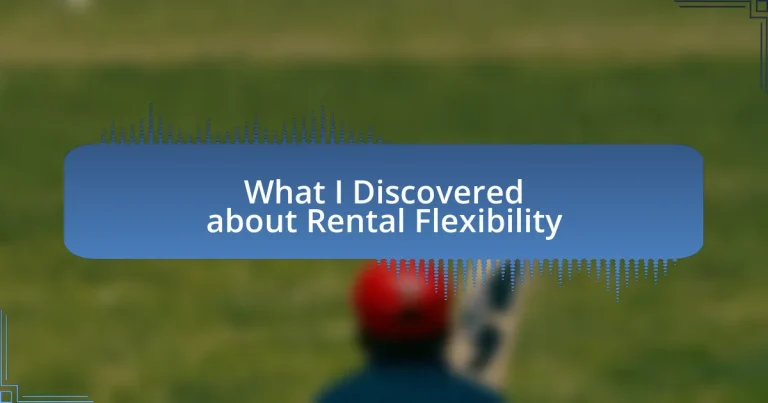Key takeaways:
- Rental flexibility allows individuals to adapt living arrangements based on changing circumstances, reducing financial stress and anxiety.
- Key types of rental flexibility include month-to-month leases, short-term rentals, and corporate housing for professionals.
- Negotiating rental flexibility can be achieved through clear communication, proposing mutual benefits, and being willing to walk away if terms don’t meet needs.
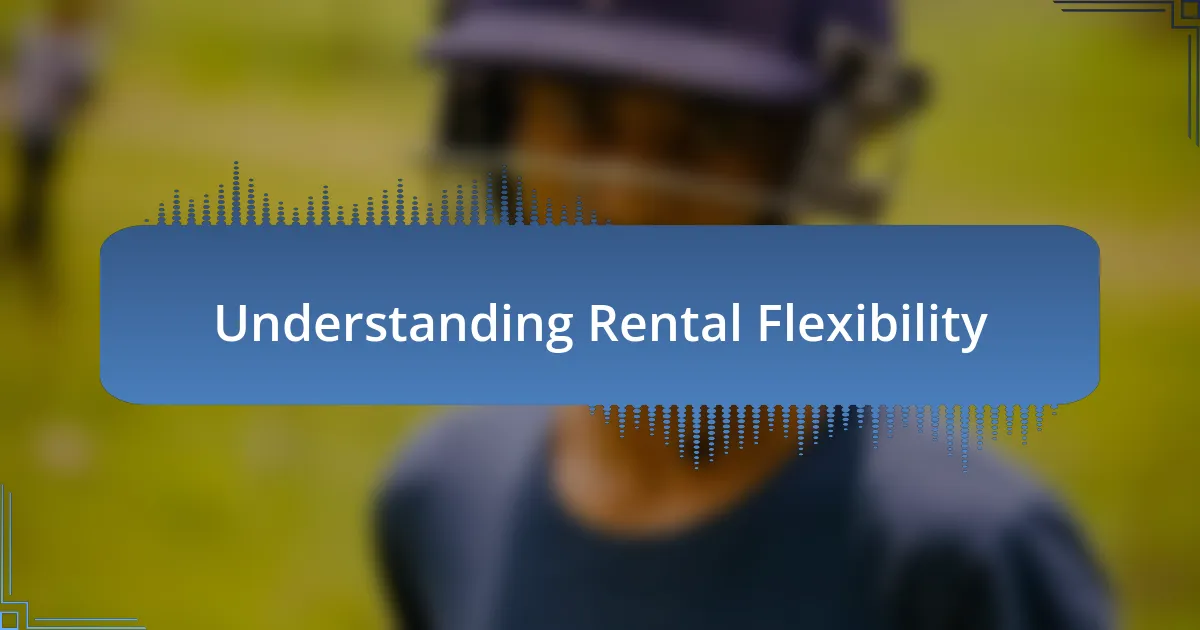
Understanding Rental Flexibility
Rental flexibility is about adapting living arrangements to fit changing needs and circumstances. I remember when I first had to move for a job opportunity; I found a short-term lease that allowed me to explore my new city without the commitment of a long-term contract. Isn’t it freeing to know that you can adjust your living situation as life unfolds?
One essential aspect of rental flexibility is the ability to choose between short-term and long-term options. I’ve seen friends thrive by taking advantage of month-to-month leases while they navigate life changes or even job transitions. What if you could trial a new neighborhood without long-term financial commitment? It could be an adventure waiting to happen!
Additionally, rental flexibility often provides financial relief during uncertain times. When I faced unexpected expenses, shifting to a more affordable rental option was a lifesaver. Don’t you think having that choice can really ease the stress during tough moments?
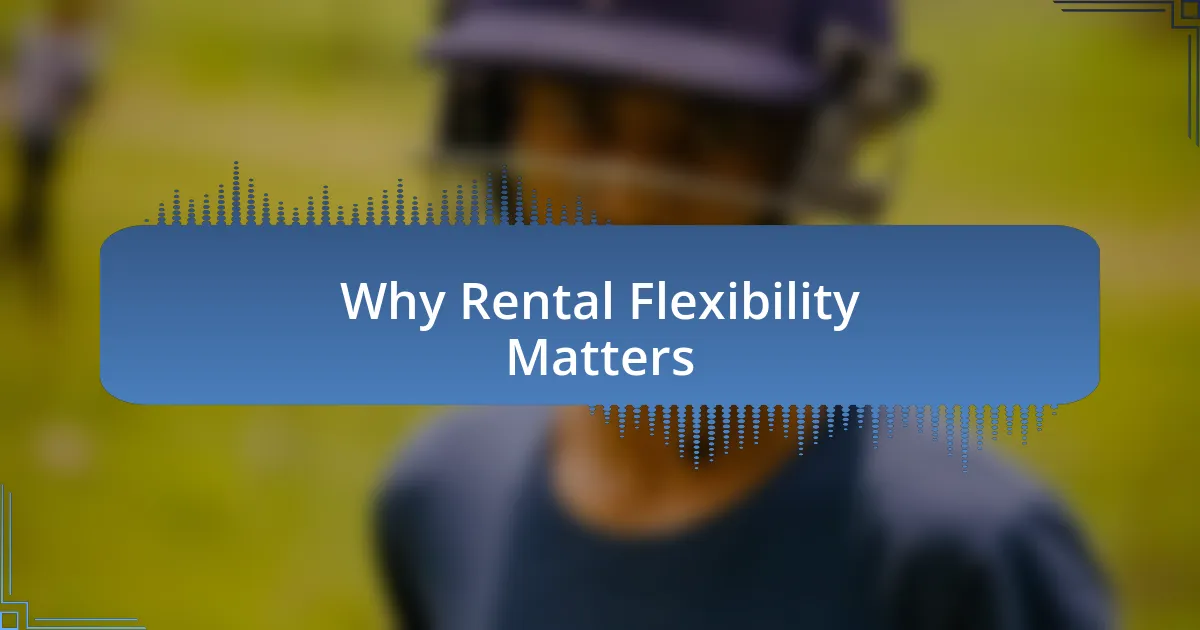
Why Rental Flexibility Matters
Rental flexibility matters immensely in today’s fast-paced world. I can’t tell you how many times I’ve witnessed friends benefit from adjusting their living arrangements. There was a time when a close friend of mine found herself in a tough spot after a sudden job loss. Being able to move to a more affordable place without the hassle of breaking a lease made all the difference in her emotional state. It allowed her the breathing room to rethink her career options without the looming financial burden of a long-term commitment.
Here are a few key reasons why rental flexibility is so crucial:
- Adaptability: Life is unpredictable. Flexibility allows you to change your living situation based on new opportunities, relationships, or financial circumstances.
- Reduced Stress: Knowing you have options can significantly reduce anxiety, especially during transitions like changing jobs or moving to a new city.
- Cost-Effectiveness: Short-term leases can often lead to financial freedom, giving you the chance to adjust your expenses as needed without locking yourself into long contracts.
When I reflect on these experiences, it’s clear that having the freedom to adapt can make life’s challenges more manageable.

Key Benefits of Rental Flexibility
Rental flexibility offers numerous benefits that can elevate one’s living experience. For instance, I recall when a friend relocated for a job opportunity that didn’t pan out as planned. Having a flexible lease allowed her to downsize quickly without the stress of a lengthy commitment. This adaptability ensured that she could focus on what mattered most – finding a better fit for her career path.
Moreover, the mental peace that comes with having choices cannot be overstated. I once faced a situation where the rising cost of my neighborhood pushed me to explore options. The ability to shift into a rental that suited my budget without enduring a pricy penalty was a game-changer. It not only eased my financial strain but also refreshed my outlook on moving; my stress levels were significantly lower.
Finally, let’s not forget the cost-effectiveness of short-term rentals. During my travels, I’ve stayed in various short-term accommodations, which allowed me to control my expenses better. This capability gave me the freedom to experience new places without the burden of being tied down financially. Being able to adjust my living costs based on my local experience has truly enriched my lifestyle.
| Benefit | Description |
|---|---|
| Adaptability | Ability to change living arrangements based on personal circumstances and opportunities. |
| Reduced Stress | A decrease in anxiety associated with long-term commitments, allowing for smoother transitions. |
| Cost-Effectiveness | Short-term leases lead to better financial management and adaptability to changing expenses. |
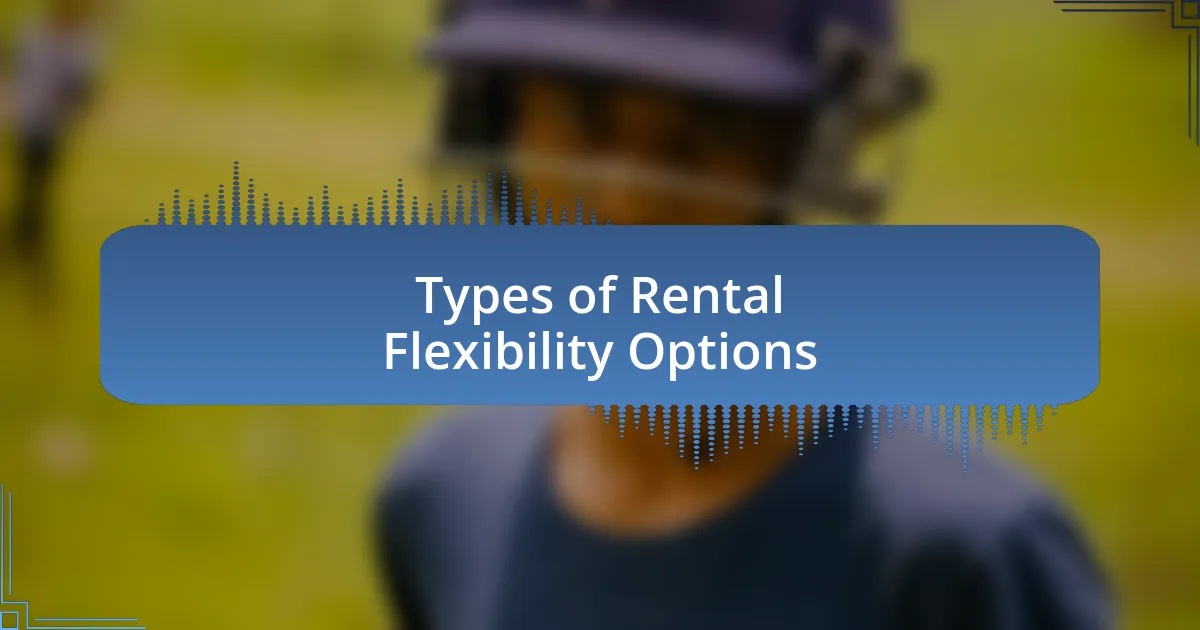
Types of Rental Flexibility Options
When exploring rental flexibility options, I often think about the appeal of month-to-month leases. This arrangement can be a lifesaver. I once transitioned to a month-to-month agreement when I was unsure about my work situation. It provided me with the breathing room I needed to evaluate my next steps without feeling locked into a long-term commitment. Isn’t it nice to have options that reduce pressure in uncertain times?
Another popular choice is the short-term rental, which I’ve come to appreciate during transitional phases in life. I remember renting a lovely studio for three months while I searched for a permanent place to live. It felt like an extended vacation, allowing me to enjoy my surroundings while keeping my options open. For anyone in a similar situation, it’s a practical way to combine comfort with flexibility, don’t you think?
Lastly, corporate housing can offer a unique format of rental flexibility, especially for professionals on temporary assignments. I had a colleague who took advantage of this when relocating for a project. Instead of committing to a lease that could complicate things later, he enjoyed the benefits of fully furnished accommodations for six months. This setup provided him with a stress-free living environment, letting him focus on work rather than the nuances of moving. Who wouldn’t appreciate a hassle-free living arrangement amid career changes?
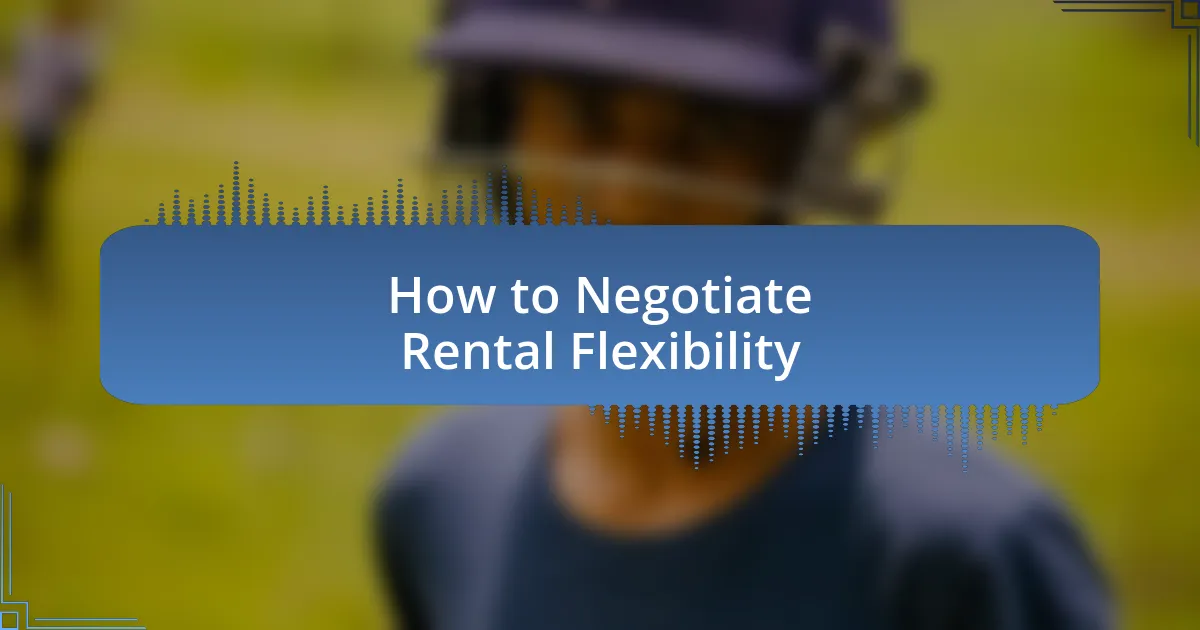
How to Negotiate Rental Flexibility
When thinking about negotiating rental flexibility, starting with clear communication is key. I recall a situation where I approached my landlord during a lease renewal. I expressed my uncertainties about my job situation and requested a shorter lease term. To my surprise, my honesty sparked a genuine conversation, and we ended up agreeing on a six-month lease instead of the usual year. Isn’t it fascinating how openness can create opportunities?
Additionally, offering something in return can be a strong negotiation tactic. In my case, I proposed to maintain the property well during my stay, which reassured my landlord of their investment’s care. This approach isn’t just about what you need; it’s about finding a mutually beneficial arrangement. Have you ever thought about how providing value can sway negotiations in your favor?
Be prepared to walk away if the terms don’t meet your needs. I once faced a scenario where the rental flexibility offered wasn’t sufficient for my circumstances. While it felt daunting at the time, deciding not to settle empowered me and ultimately led me to a better housing option that fit my situation perfectly. After all, isn’t it better to hold out for the right fit than to feel trapped in a lease that doesn’t serve you?
